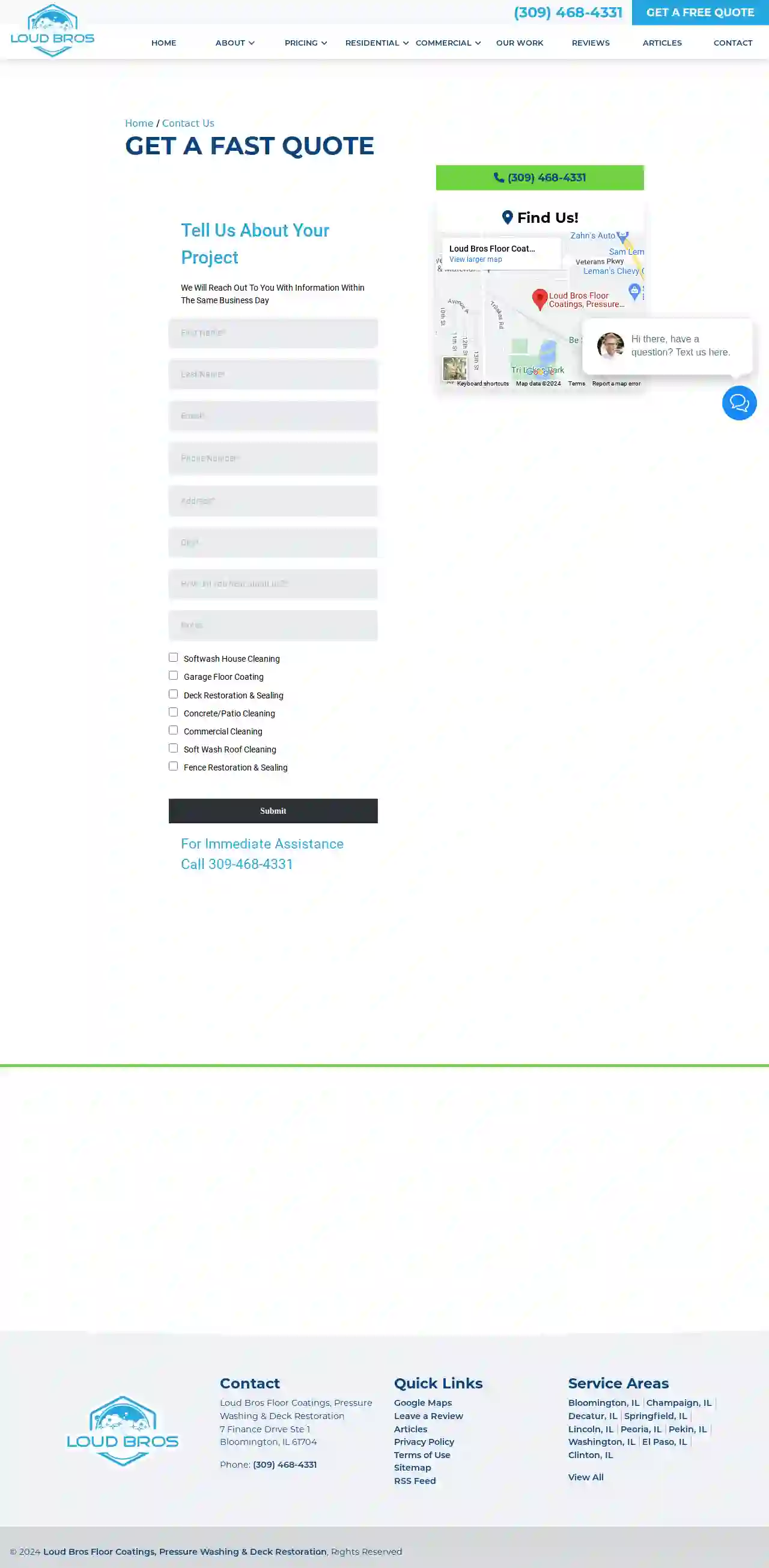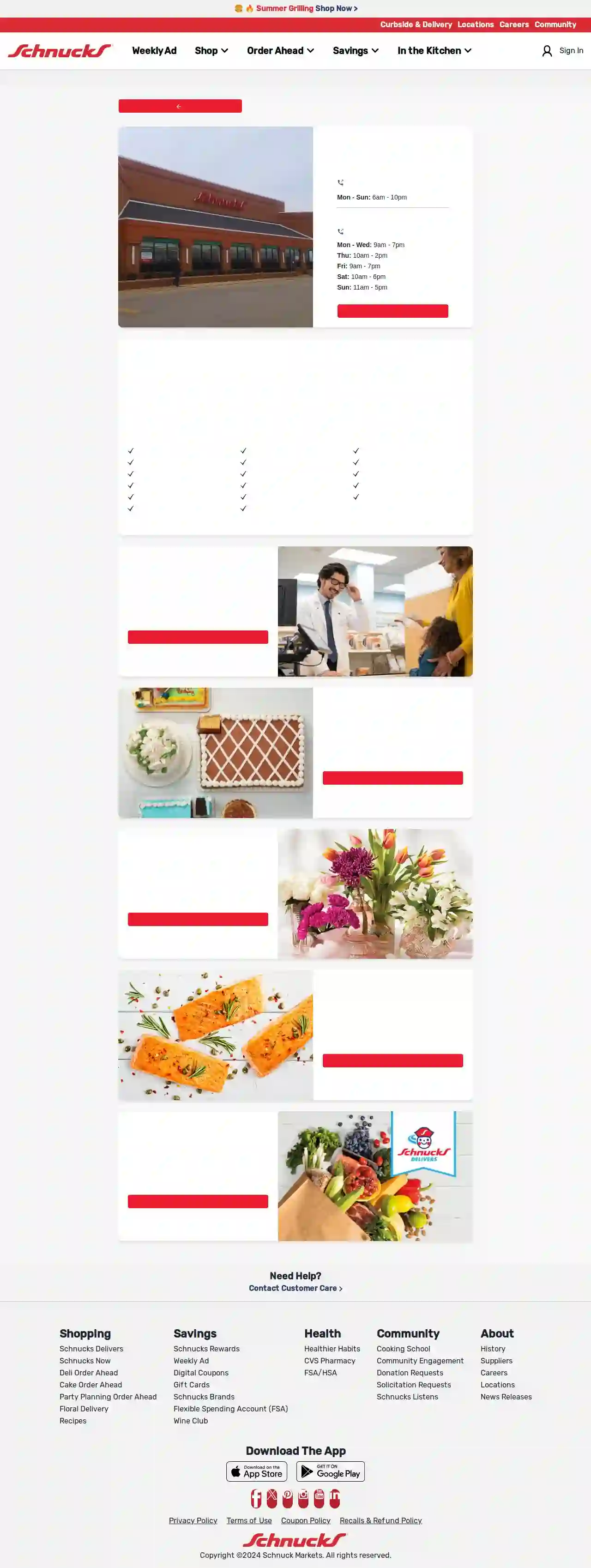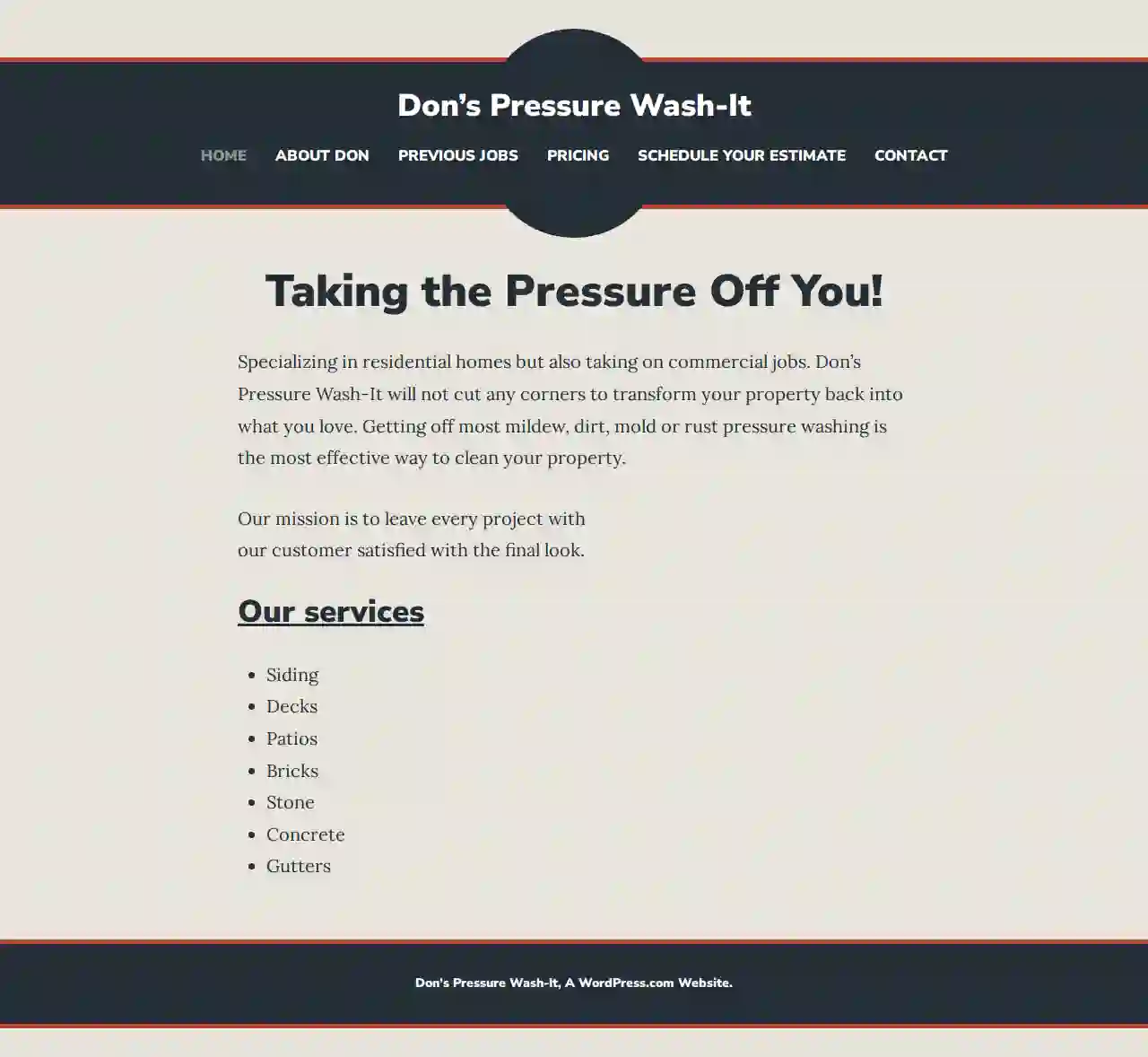Pressure Washing Litchfield
Find Commercial Pressure Washing in Litchfield
Receive multiple Power Washing quotes for your project today! Compare profiles, reviews, accreditations, portfolio, etc... and choose the best deal.

Pressure Washing Company
7 Finance Drive Ste 1, Bloomington, 61704, USLoud Bros Pressure Washing is a professional power washing and garage floor coating company based in Central Illinois. They specialize in providing top-notch exterior cleaning services for home and business properties, using eco-friendly chemicals to protect and enhance the longevity of paint. Their services include house washing, roof cleaning, garage floor coatings, storefront washing, and more. With a focus on quality and customer satisfaction, Loud Bros Pressure Washing is the go-to choice for those seeking to restore the beauty of their property.
- Services
- Why Us?
- Accreditations
- Our Team
- Testimonials
- Gallery
Get Quote
ChicagoLand SoftWash
516 reviewsArlington Heights, 60004, USChicagoLand SoftWash is a professional pressure washing company in Arlington Heights, IL, that specializes in residential and commercial pressure washing services. We are committed to making your environment a cleaner and safer place to be in. Our team of trained and qualified members goes above and beyond to provide you with reliable and affordable pressure washing solutions. Our soft wash technology and machinery were created by the ChicagoLand SoftWash team and went into use back in 2015 when officially certified and founded. In these 9 years, we have gained multitudes of knowledge every day of what is needed to protect our customers’ homes or businesses, while the whole time sanitizing and cleaning them to their original, if not newer, look by removing years of organisms such as fungi, bacteria, mold (including black mold), mildew, and lichen that grows on the exterior of these places. We understand that each property is unique and requires a customized cleaning solution. That's why we provide personalized pressure washing services to meet your specific needs. Whether it's a residential property or a commercial building, we have the expertise to deliver excellent results. At ChicagoLand SoftWash, we clean your property without causing any damages that straight pressure washing and power washing can do to your home or business's exterior. Our soft wash is a gentle cleaning process that uses eco-friendly solutions to kill and remove harmful organisms, leaving your property looking like new. Our team of experts is equipped with the latest tools and equipment to deliver safe and effective pressure washing services. We specialize in pressure washing Stucco, EIFS & Dryvit buildings, which are known for their delicate nature. Our pressure washing is gentle enough to clean these surfaces without causing any damage.
- Services
- Why Us?
- Our Team
- Testimonials
- Gallery
Get Quote
Schnucks Champaign
4.3109 N. Mattis Rd, Champaign, IL, 61821, USSchnucks Champaign is a grocery store located at 109 N. Mattis Rd, Champaign, IL 61821. It offers a variety of services including deli, meat, dairy, bakery, floral, grocery, produce, seafood, pharmacy, frozen food, blood pressure screening, Redbox, wireless solutions, Boar's Head, CoinMax location, Rug Doctor, Sugarfire Smoke House, and more. The store is open from 6am to 10pm, Monday through Sunday. The pharmacy is open from 9am to 7pm, Monday through Friday, 10am to 6pm on Saturday, and 11am to 5pm on Sunday. The store manager is Andy Jayne, and the co-manager is Phillip Green.
- Services
- Why Us?
- Accreditations
- Our Team
- Testimonials
- Gallery
Get Quote
AMG Pressure Washing
Bloomington, 61701, USAMG Pressure Washing is a residential and commercial pressure washing and soft-washing contractor servicing Bloomington and the surrounding areas. We are proud to bring our industry experience to each and every job we do. Whether you're looking to clean up your driveway to restore curb appeal, or prepping for a major project, our knowledgeable team has the skills and tools to make sure the job is done right. Our team is large enough to deliver professional exterior cleaning solutions while offering the personal touches that ensure we meet your goals and exceed your expectations. Contact us today for additional information or to schedule a free estimate.
- Services
- Why Us?
- Gallery
Get Quote
All Purpose Power & Softwash
56 reviews349 Grapevine Trl, Oswego, 60543, USAll Purpose Power & Softwash is your local, hometown pressure washing expert serving Aurora and the surrounding areas. We are a professional pressure washing company dedicated to providing affordable curb appeal for all residential, commercial, and local business owners. We take pride in our work and are committed to customer satisfaction, offering a 100% customer satisfaction guarantee. Our team has a combined three years of experience and offers a wide variety of services, including house washing, roof cleaning, driveway washing, patio washing, commercial pressure washing, and more! We use the latest techniques and equipment to ensure the best possible results without damaging your property. When you choose All Purpose Power & Softwash, you can expect: Exceptional customer service Superior workmanship Top-quality results Affordable pricing A 100% customer satisfaction guarantee Contact us today for a free estimate and let us help you achieve the clean and fresh look you deserve!
- Services
- Why Us?
- Our Team
- Testimonials
- Gallery
Get Quote
Real Splash Power Wash
549 reviewsNA, Plainfield, USReal Splash Power Wash is a company dedicated to providing top-quality soft washing and pressure washing services in Plainfield, IL, and surrounding areas. With over 5 years of experience and a team of professionals, they take pride in delivering exceptional service, meeting every client's need with care and expertise. They offer a wide range of services, from detailed soft washing to powerful pressure cleaning, each tailored to protect and enhance the beauty and value of your property. Real Splash Power Wash is committed to customer satisfaction, offering a 100% satisfaction guarantee or they will rewash for free. They are fully licensed and insured up to $1 million, ensuring customer peace of mind. They prioritize plant safety using eco-friendly solutions and careful measures during their services.
- Services
- Why Us?
- Accreditations
- Our Team
- Testimonials
- Gallery
Get Quote
Airstream Pressure Washing, Inc
4.25 reviews1625 Gilpen Ave, South Elgin, 60177, USAirstream Pressure Washing is a locally owned and operated business dedicated to providing high-quality pressure washing services to residential, commercial, and fleet clients in South Elgin, Illinois, and the surrounding areas. We understand the importance of a clean and well-maintained exterior for both homes and businesses, and we strive to exceed our clients' expectations with our professional and reliable service. Our team of skilled technicians utilizes state-of-the-art equipment and eco-friendly cleaning solutions to effectively remove dirt, grime, mildew, and mold from a variety of surfaces, including siding, decks, patios, fences, and more. We are fully insured and committed to providing safe and efficient service. At Airstream Pressure Washing, we take pride in our attention to detail and commitment to customer satisfaction. The owners are actively involved in the day-to-day operations and prioritize building lasting relationships with our clients. We believe in transparency and clear communication, ensuring that our clients are informed every step of the way. Whether you need a one-time cleaning or a recurring maintenance schedule, we are here to help you keep your property looking its best. Contact us today for a free estimate and experience the Airstream Pressure Washing difference!
- Services
- Why Us?
- Gallery
Get Quote
Don's Pressure Wash It
5119 reviewsChicago, USTaking the Pressure Off You! Specializing in residential homes but also taking on commercial jobs. Don’s Pressure Wash-It will not cut any corners to transform your property back into what you love. Getting off most mildew, dirt, mold or rust pressure washing is the most effective way to clean your property. Our mission is to leave every project with our customer satisfied with the final look.
- Services
- Why Us?
- Gallery
Get Quote
AMD POWER WASHING
555 reviews27992 W IL 120, 20, Lakemoor, 60051, USAmd Power Washing is a professional contractor offering exterior cleaning and pressure washing services to help remove years of grit, grime, and grease quickly, affordably, and safely. We are dedicated to helping our clients with all sizes of exterior cleaning projects and a variety of pressure washing services. Our team is supplied with the skills and equipment to complete your cleaning projects safely, efficiently, on-time, and on-budget. We are proud to bring our industry experience to each and every job we do. Whether you're looking to clean up the boat or RV, finish a minor clean-up job to restore curb appeal, or prepping for a major project, our knowledgeable team has the skills and tools to make sure the job is done right. Our team is large enough to deliver professional exterior cleaning solutions while offering the personal touches that ensure we meet your goals and exceed your expectations.
- Services
- Why Us?
- Accreditations
- Our Team
- Testimonials
- Gallery
Get Quote
Pressure Washing Chicago
514 reviewsChicago, USPressure Washing Chicago is a company that offers high-quality pressure washing services throughout the Chicagoland area. With 30 years of experience, we have a higher quality of power washing standards than some larger companies. We offer commercial, industrial, and residential pressure-washing solutions, and we understand that we are working for you at all times. We learn what you are looking for by listening to you, and then we aim to please the first time around. We use $10,000 steam power washers and have invested thousands more into our state-of-the-art equipment. We have the knowledge to complete any cleaning job you may have, the experience to get it done right the first time, and the efficiency to keep it all in the budget.
- Services
- Why Us?
- Gallery
Get Quote
Over 60,241+ Janitorial Services in our network
Our cleaning services operate in Litchfield & beyond!
CleaningMatch has curated and vetted Top Janitorial Contractors in Litchfield. Find a top & trustworthy pro today.
Frequently Asked Questions About Pressure Washing
- Wear Protective Gear: Wear safety glasses, closed-toe shoes, and long pants to protect yourself from flying debris and water spray.
- Never Point the Nozzle at Yourself or Others: High-pressure water can cause serious injuries. Always point the nozzle away from yourself, others, and pets.
- Use Caution on Ladders: If working on a ladder, ensure it is stable and secure. Avoid overreaching or leaning too far to one side.
- Be Mindful of Electrical Hazards: Keep water away from electrical outlets, wiring, and appliances.
- Follow Manufacturer's Instructions: Always read and follow the pressure washer manufacturer's instructions for safe operation and maintenance.
- Annually: Pressure washing your house at least once a year helps remove accumulated dirt, grime, and other contaminants, keeping it looking its best.
- Every 2-3 Years: If you live in an area with high humidity, heavy tree cover, or frequent exposure to pollutants, more frequent pressure washing may be necessary.
- When Visible Dirt and Grime Appear: Address visible dirt, stains, or mold growth promptly to prevent them from becoming more challenging to remove.
- Reputation and Reviews: Check online reviews and ask for referrals to gauge the company's reputation and customer satisfaction.
- Experience and Expertise: Look for a company with a proven track record and experience in pressure washing various surfaces.
- Licensing and Insurance: Ensure the company is licensed and insured to protect you from liability.
- Equipment and Techniques: Inquire about the company's equipment and techniques to ensure they use appropriate pressure levels and cleaning solutions.
- Quotes and Pricing: Obtain detailed quotes that outline all services and costs.
- Professionalism and Communication: Choose a company that is responsive, communicative, and professional.
- Wood Siding: High-pressure washing can damage wood fibers, leading to splintering or etching. Soft washing is the recommended method for cleaning wood siding.
- Asphalt Shingles: High-pressure water can dislodge granules from asphalt shingles, reducing their lifespan. Soft washing is a gentler alternative for roof cleaning.
- Painted Surfaces: High pressure can strip paint from surfaces. Always test pressure washing on an inconspicuous area before cleaning painted surfaces.
- Windows and Screens: The force of pressure washing can break windows or damage delicate window screens. Traditional cleaning methods are better suited for windows and screens.
What are some safety precautions to take when pressure washing?
Prioritizing safety when pressure washing protects you and others from potential injuries or accidents.
How often should I pressure wash my house?
Regular pressure washing can maintain your home's exterior, extend the lifespan of your siding, and enhance its curb appeal.
What should I look for in a pressure washing company?
A reputable pressure washing company will prioritize safety, use appropriate cleaning methods, and provide excellent customer service.
Is pressure washing safe for all surfaces?
Always consult with a professional pressure washing company to determine the appropriate cleaning method for your specific surfaces.
What are some safety precautions to take when pressure washing?
- Wear Protective Gear: Wear safety glasses, closed-toe shoes, and long pants to protect yourself from flying debris and water spray.
- Never Point the Nozzle at Yourself or Others: High-pressure water can cause serious injuries. Always point the nozzle away from yourself, others, and pets.
- Use Caution on Ladders: If working on a ladder, ensure it is stable and secure. Avoid overreaching or leaning too far to one side.
- Be Mindful of Electrical Hazards: Keep water away from electrical outlets, wiring, and appliances.
- Follow Manufacturer's Instructions: Always read and follow the pressure washer manufacturer's instructions for safe operation and maintenance.
Prioritizing safety when pressure washing protects you and others from potential injuries or accidents.
How often should I pressure wash my house?
- Annually: Pressure washing your house at least once a year helps remove accumulated dirt, grime, and other contaminants, keeping it looking its best.
- Every 2-3 Years: If you live in an area with high humidity, heavy tree cover, or frequent exposure to pollutants, more frequent pressure washing may be necessary.
- When Visible Dirt and Grime Appear: Address visible dirt, stains, or mold growth promptly to prevent them from becoming more challenging to remove.
Regular pressure washing can maintain your home's exterior, extend the lifespan of your siding, and enhance its curb appeal.
What should I look for in a pressure washing company?
- Reputation and Reviews: Check online reviews and ask for referrals to gauge the company's reputation and customer satisfaction.
- Experience and Expertise: Look for a company with a proven track record and experience in pressure washing various surfaces.
- Licensing and Insurance: Ensure the company is licensed and insured to protect you from liability.
- Equipment and Techniques: Inquire about the company's equipment and techniques to ensure they use appropriate pressure levels and cleaning solutions.
- Quotes and Pricing: Obtain detailed quotes that outline all services and costs.
- Professionalism and Communication: Choose a company that is responsive, communicative, and professional.
A reputable pressure washing company will prioritize safety, use appropriate cleaning methods, and provide excellent customer service.
Is pressure washing safe for all surfaces?
- Wood Siding: High-pressure washing can damage wood fibers, leading to splintering or etching. Soft washing is the recommended method for cleaning wood siding.
- Asphalt Shingles: High-pressure water can dislodge granules from asphalt shingles, reducing their lifespan. Soft washing is a gentler alternative for roof cleaning.
- Painted Surfaces: High pressure can strip paint from surfaces. Always test pressure washing on an inconspicuous area before cleaning painted surfaces.
- Windows and Screens: The force of pressure washing can break windows or damage delicate window screens. Traditional cleaning methods are better suited for windows and screens.
Always consult with a professional pressure washing company to determine the appropriate cleaning method for your specific surfaces.